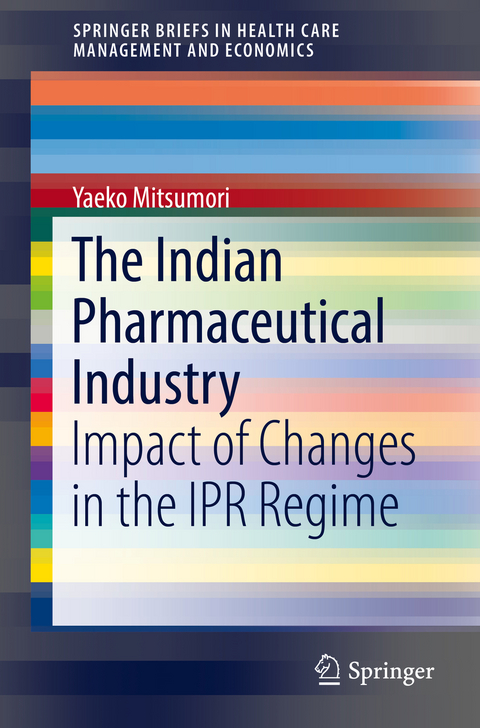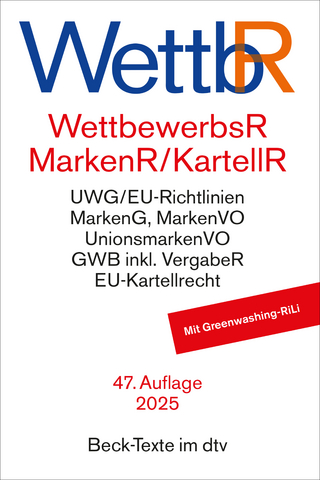
The Indian Pharmaceutical Industry
Impact of Changes in the IPR Regime
Seiten
2018
|
1st ed. 2018
Springer Verlag, Singapore
978-981-10-6789-1 (ISBN)
Springer Verlag, Singapore
978-981-10-6789-1 (ISBN)
This study analyzes the impact of the revision of the Indian Patent Act (2005) on the Indian pharmaceutical industry, which has been achieving healthy growth over the past 30 to 40 years or more. As of 2005, the Indian pharmaceutical industry was ranked as No. 4 in the world in terms of volume and 15th in terms of value. WTO/TRIPS required India to revise its patent law, however, and to introduce product patents in the pharmaceutical field. Many not only in India but also in the world had argued that the local pharmaceutical industry could deteriorate once a strong patent law (such as a product patent) was introduced. However, the Indian pharmaceutical industry has continued to develop rapidly even after the revision of the patent law in 2005. This present study started with efforts to work out the reason the Indian pharmaceutical industry successfully expanded even after the introduction of product patents. The study found that a unique article (the so-called '3-d‘) inserted in the Patent Act 2005 might have played a role in diminishing or preventing a negative impact from the introduction of a strong patent system, such as a product patents. The study also considers that a change of the business model adopted by the Indian pharmaceutical industry might have contributed to diminishing the effect of the negative impact from the introduction of a strong patent law.
This study also covers recent developments in India regarding intellectual property rights and the pharmaceutical industry. One is India’s very first compulsory license granted to an Indian pharmaceutical company, Natco, against the large German pharmaceutical firm Bayer; and the second is the Supreme Court decision on Novartis’ Gleevec. The study analyzes the fundamental problems that caused these two events: access to medicine and gaps in the concept of intellectual property in the pharmaceutical industry. As possible solutions to these fundamental issues, this book explores the ideas of voluntary licensing and tiered pricing.
This study also covers recent developments in India regarding intellectual property rights and the pharmaceutical industry. One is India’s very first compulsory license granted to an Indian pharmaceutical company, Natco, against the large German pharmaceutical firm Bayer; and the second is the Supreme Court decision on Novartis’ Gleevec. The study analyzes the fundamental problems that caused these two events: access to medicine and gaps in the concept of intellectual property in the pharmaceutical industry. As possible solutions to these fundamental issues, this book explores the ideas of voluntary licensing and tiered pricing.
Chapter 1: Introduction.- Chapter 2: Historical Background and Current Status of Indian Pharmaceutical Industry and Indian Patents Regime.- Chapter 3: Research Subject and Methodology.- Chapter 4: Analysis of Preceding Studies.- Chapter 5: Analysis of Indian Pharmaceutical Industry Indicators-Data Analysis.- Chapter 6: Analysis of Patents Act Enforcement After Introduction of Product Patents.- Chapter 7: Applicability of Section 3 (d).- Chapter 8: Conclusions and Future Challenges.
| Erscheinungsdatum | 26.06.2018 |
|---|---|
| Reihe/Serie | SpringerBriefs in Health Care Management and Economics |
| Zusatzinfo | 28 Illustrations, color; 8 Illustrations, black and white; VII, 120 p. 36 illus., 28 illus. in color. |
| Verlagsort | Singapore |
| Sprache | englisch |
| Maße | 155 x 235 mm |
| Themenwelt | Medizin / Pharmazie ► Gesundheitswesen |
| Medizin / Pharmazie ► Pharmazie | |
| Recht / Steuern ► EU / Internationales Recht | |
| Recht / Steuern ► Wirtschaftsrecht ► Urheberrecht | |
| Technik | |
| Wirtschaft ► Betriebswirtschaft / Management ► Marketing / Vertrieb | |
| Wirtschaft ► Volkswirtschaftslehre | |
| Schlagworte | Access to medicine • Emerging Markets • India • IPR • Patent • Pharmaceutical Industry |
| ISBN-10 | 981-10-6789-9 / 9811067899 |
| ISBN-13 | 978-981-10-6789-1 / 9789811067891 |
| Zustand | Neuware |
| Haben Sie eine Frage zum Produkt? |
Mehr entdecken
aus dem Bereich
aus dem Bereich
Gesetz gegen den unlauteren Wettbewerb, Preisangabenverordnung, …
Buch | Softcover (2024)
dtv Verlagsgesellschaft
CHF 23,65
Textausgabe zum deutschen, europäischen und internationalen Patent-, …
Buch | Softcover (2023)
dtv Verlagsgesellschaft
CHF 24,95


